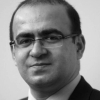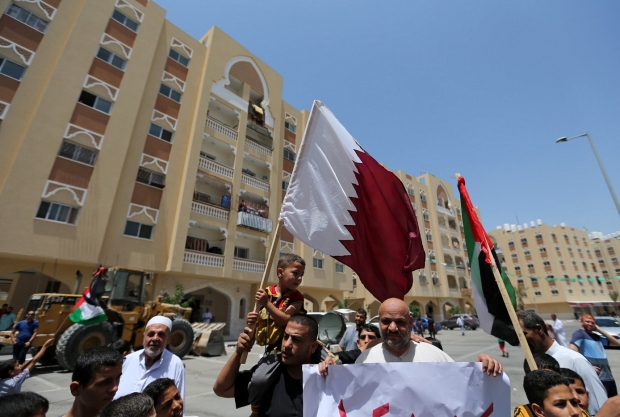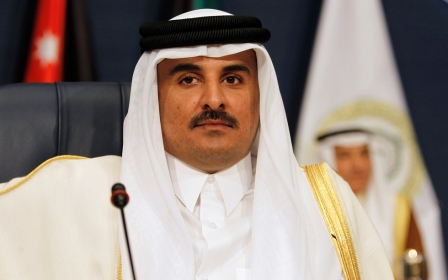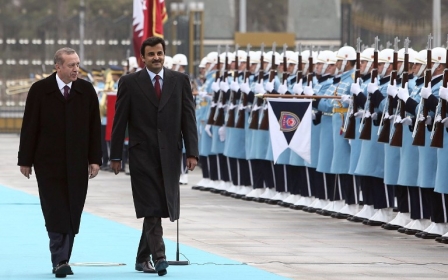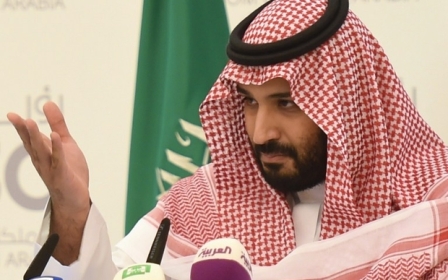The Qatari crisis? Chaos fuelled by Islamophobia and Islamist-phobics
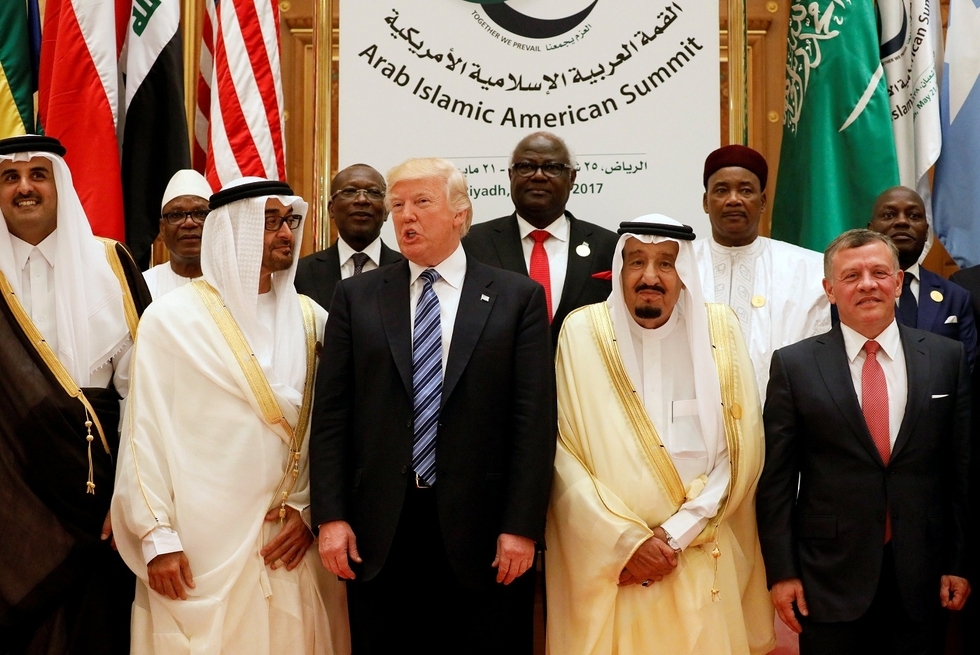
The Qatar-Gulf stand-off is very difficult to understand. In the media, we are bombarded with a litany of cliches regarding the nature of the crisis, its development and possible consequences.
And then of course there are the 140-character-long deep geopolitical analyses of the crisis that many say will have very dangerous consequences!
The entire Middle Eastern crisis has been reduced to a problem of terrorism in one short stroke
But despite the complexity around it, this stand-off truly marks the apex of political nihilism and nonsense.
A country in the Gulf that has significant trade relations with Iran somehow blames another Gulf country for having relations with Iran. A Qatari cannot visit the Emirates because of his country’s formal relations with Iran. But an Iranian could visit other Gulf countries.
Another Gulf country that is the raison d'être of Salafis, who helped make the Islamic State (IS) group possible, somehow accuses Qatar of supporting the sectarian outfits that are even hostile to one another.
In short, the entire Middle Eastern crisis has been reduced to a problem of terrorism in one short stroke and Qatar has been declared as the culprit behind it all.
A scandal, a tragedy and a tragicomedy
If this was all, maybe we could end this here. But as soon as you start to think that you are about to understand what is happening, the American president comes along and tweets something like: it is "so good to see the Saudi Arabia visit with the king and 50 countries already paying off”.
Then US departments and individuals from the Pentagon to the State Department immediately rush to declare that the US has nothing to do with the "payoffs from the president’s visit".
What is being called the 'Qatar crisis' is the intersection of Islamophobia generated by Atlantic populism and Islamist-phobia led by the Gulf
Adding insult to injury, they send an FBI team to Qatar - whose support for all kinds of terrorism they only became distressed enough to act on in June 2017 - to investigate the hacking scandal! And then President Trump calls the Emir of Qatar, whom he has blamed for terrorism financing, and offers to mediate!
What sort of a roadmap can emerge out of this kettle of fish, if at all, is a total mystery. It is equally hard to know how the outcome would have been any different had Qatar "really understood first" what was expected of it and taken the "necessary" steps.
This is the truth: an artificial crisis that resulted from a hacking scandal created a tragedy, only to be followed by a tragicomedy.
This is probably why the actors in this crisis appear to think that this situation is only temporary: there is considerable chance that the tension will be forgotten and treated as if it never happened with the stroke of a tweet tomorrow.
Chaos not crisis
We need to start with that overview of events in order to clearly separate the rhetorical causes of the crisis from its very real and serious geopolitical backdrop.
In fact, what we are faced with bears the qualities of chaos more than crisis: the Gulf political chaos is unfolding in the shadow of global political crisis.
Anyone who releases a ransom list for Qatar like a hostage taker is clearly in a deeply confused state of mind
If this were a deep and comprehensive crisis, rather than chaos, we would be able able to pinpoint its dynamics, tangible causes and possible consequences. What is presented as the "Qatar crisis" is therefore nothing but chaos.
Neither the points of contention between Qatar and Saudi Arabia stretching back a quarter century, nor energy geopolitics, nor the map of alliances in the Gulf can satisfactorily explain the alleged "crisis".
Thinking of this situation as chaos - a confused, unorganised state of primordial matter or the inherent unpredictability in the behaviour of a system - may make things far clearer for all of us.
After all, anyone who releases a ransom list for Qatar like a hostage taker is clearly in a deeply confused state of mind - one so facetious and over the top that they might demand just about anything at the moment.
It is not a surprise that, despite this, almost all op-eds and analyses written about this "crisis" end in one way or another with one open or implied question: "what do they really want from Qatar now?"
And although the Gulf issued a public list of ransom, what is even more surprising is that no one seems to be taking them seriously. Instead, many continue to ask "what do you really want?", followed of course by "why do you want it and why now?".
Driven by Islamophobia and Islamist-phobia
We need to admit that political analyses, geopolitical readings and energy politics cannot explain the Gulf chaos because fundamentally none of them play a serious role in this situation.
Rather, we must say it bluntly: what is being called the "Qatar crisis" is the intersection of Islamophobia generated by Atlantic populism and Islamist-phobia led by the Gulf.
To make matters worse, personal decisions largely outside of institutions and political norms are driving this crisis, as shown by both the Gulf's ransom list and the fact that the US State Department, Pentagon and others have disowned their demands unlike President Trump.
In the end, the actors involved in the chaos are none other than an emir, a king and a president, a strange and suspicious Gulf triangle. State departments, regional powers and defense ministries are literally not involved.
This is where political analysis and geopolitics end and journalism begins. Depending on investigative journalists, the public may be more informed on the dynamics and elements of this Gulf triangle in the days ahead.
The mindset, not the demands
At the same time, we need to think about the mindset that created the ransom list instead of the items on it. This is the same mindset in the same axis that shed blood, forestalled change and suppressed the Arab Spring. The one that entrenches rising Islamophobia in the West and escalates deep Islamist-phobia.
Why wish for IS-type groups to get stronger? For Islamophobic leaders, democratic demands for change are more dangerous than armed terrorist groups
As all politically reasonable people agree, the Islamic State (IS) group and equivalent organisations, which are the archenemy of Islamist movements demanding democratic change in the Middle East, feed off of Islamist-phobia. War against non-violent Islamic movements only strengthens terrorist organisations such as IS and al-Qaeda.
Given this logic, a legitimate question emerges: why wish for IS-type groups to get stronger? The most reasonable answer is that, for Islamophobic leaders, democratic demands for change are more dangerous than armed terrorist groups.
It is for this reason that the Muslim Brotherhood, which rejects violence and refuses to arm, is obsessively turned into an object of fear. The more the Brotherhood says, “We will not resort to violence; we will continue our democratic struggle,” the faster it is declared a terrorist organisation. The more Hamas promises new political openings in an occupied country, the more it is accused of terrorism.
The only expectation the Islamophobic mind has from Islamic movements is that they all appear to be like al-Qaeda and IS. Yet, terrorist organisations such as IS and al-Qaeda have categorised Islamists rooting for democratic transformation as enemies from the beginning.
The Brotherhood couldn't be a terrorist organisation even if it tried because, like Hamas, it is a movement with historical roots, settled theology, solid philosophy, and mature political traditions. The geopolitics of being on the same list with IS is not sustainable even if it is possible.
IS and al-Qaeda thrive in the world intelligence agency underground. The Brotherhood and other non-armed Islamic movements, in contrast, are political parties that prosper among people on the ground
IS and others, however, are dark terrorist organisations that emerged after Western occupations and the insertion of distorted Gulf-centred theology. IS and al-Qaeda thrive in the world intelligence agency underground. The Brotherhood and other non-armed Islamic movements, in contrast, are political parties that prosper among people on the ground.
Those who are unwilling to make these distinctions are trying to exploit the state of defeat and depression in which the movements rooting for democratic change in the region after the Arab Spring now find themselves.
Such rudimentary reasoning will not produce a single positive outcome in the long-term. Importing and transforming "Muslim ban" into a "Qatar ban" may be an exciting political exercise, but also it is quite dangerous!
- Taha Ozhan is a member of Turkish Parliament and chairman of Foreign Affairs Committee. He is an academic and writer. Ozhan holds a PhD in Politics and International Relations. He frequently comments and writes for international media. His latest book is Turkey and the crisis of Sykes-Picot Order (2015).
The views expressed in this article belong to the author and do not necessarily reflect the editorial policy of Middle East Eye.
Photo: (r-l) Jordan's King Abdullah II, Saudi Arabia's King Salman bin Abdulaziz Al Saud, US President Donald Trump, Abu Dhabi Crown Prince Sheikh Mohammed bin Zayed al-Nahyan and Qatar's Emir Sheikh Tamim Bin Hamad Al-Thani pose for a photo during Arab-Islamic-American Summit in Riyadh, Saudi Arabia 21 May 2017. (Reuters)
New MEE newsletter: Jerusalem Dispatch
Sign up to get the latest insights and analysis on Israel-Palestine, alongside Turkey Unpacked and other MEE newsletters
Middle East Eye delivers independent and unrivalled coverage and analysis of the Middle East, North Africa and beyond. To learn more about republishing this content and the associated fees, please fill out this form. More about MEE can be found here.


